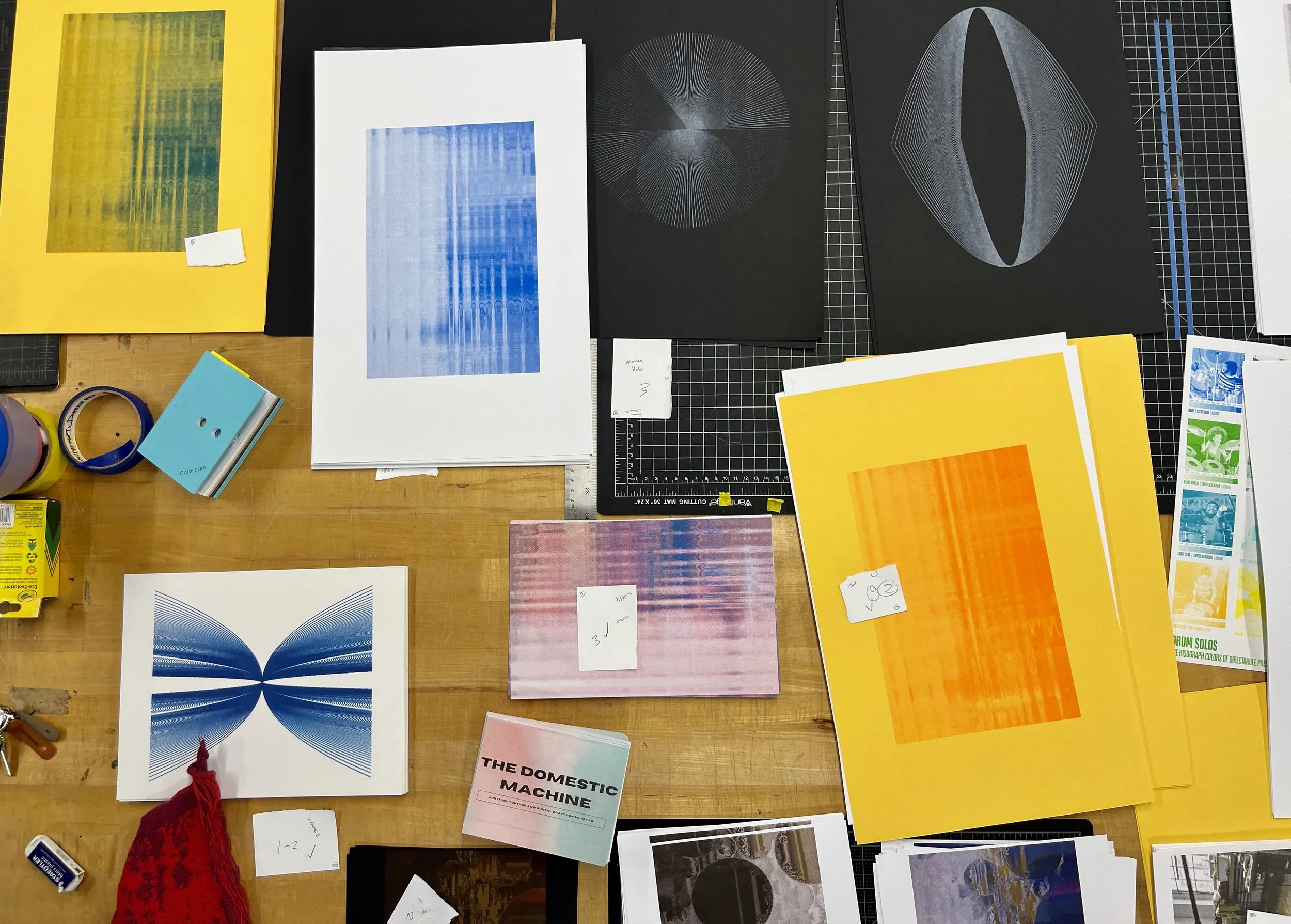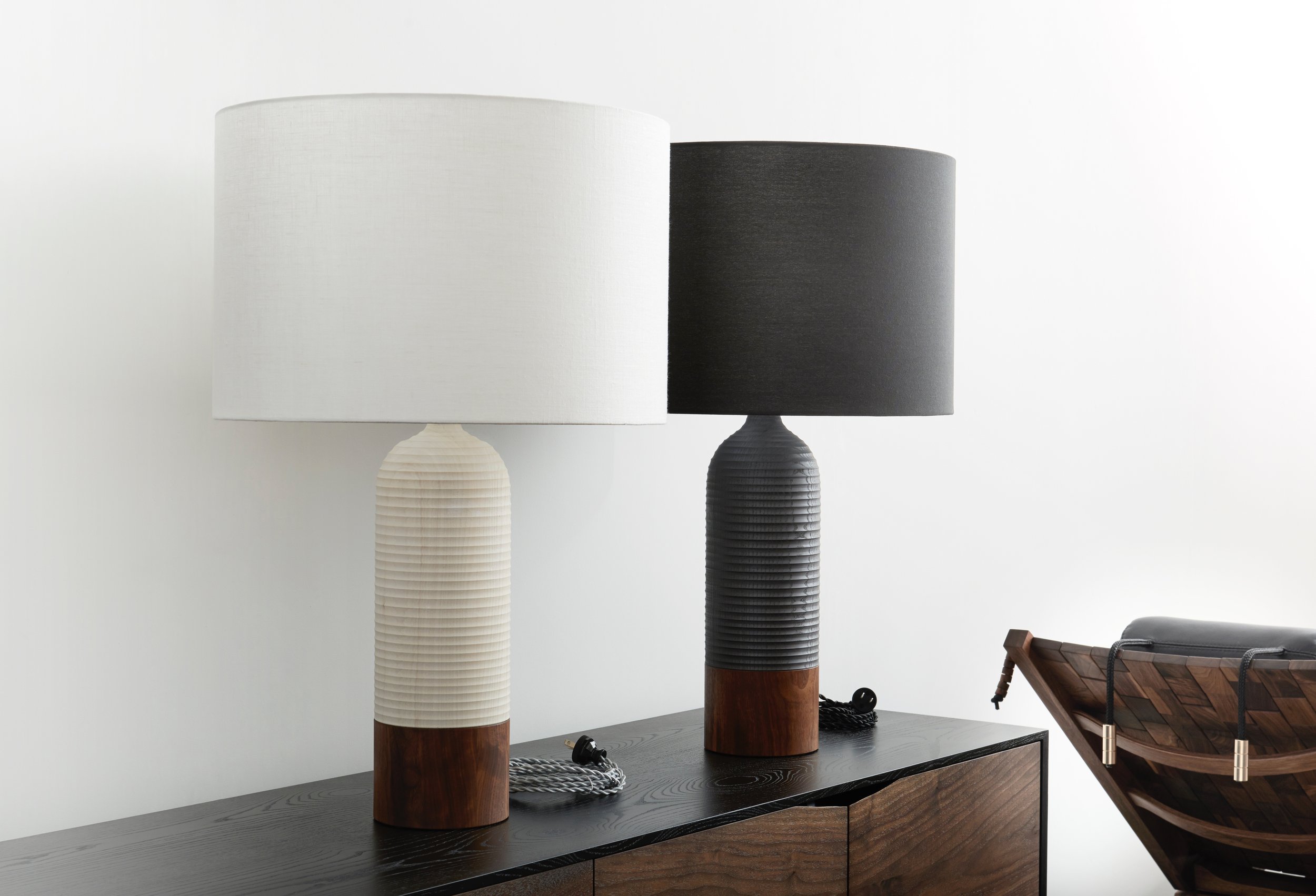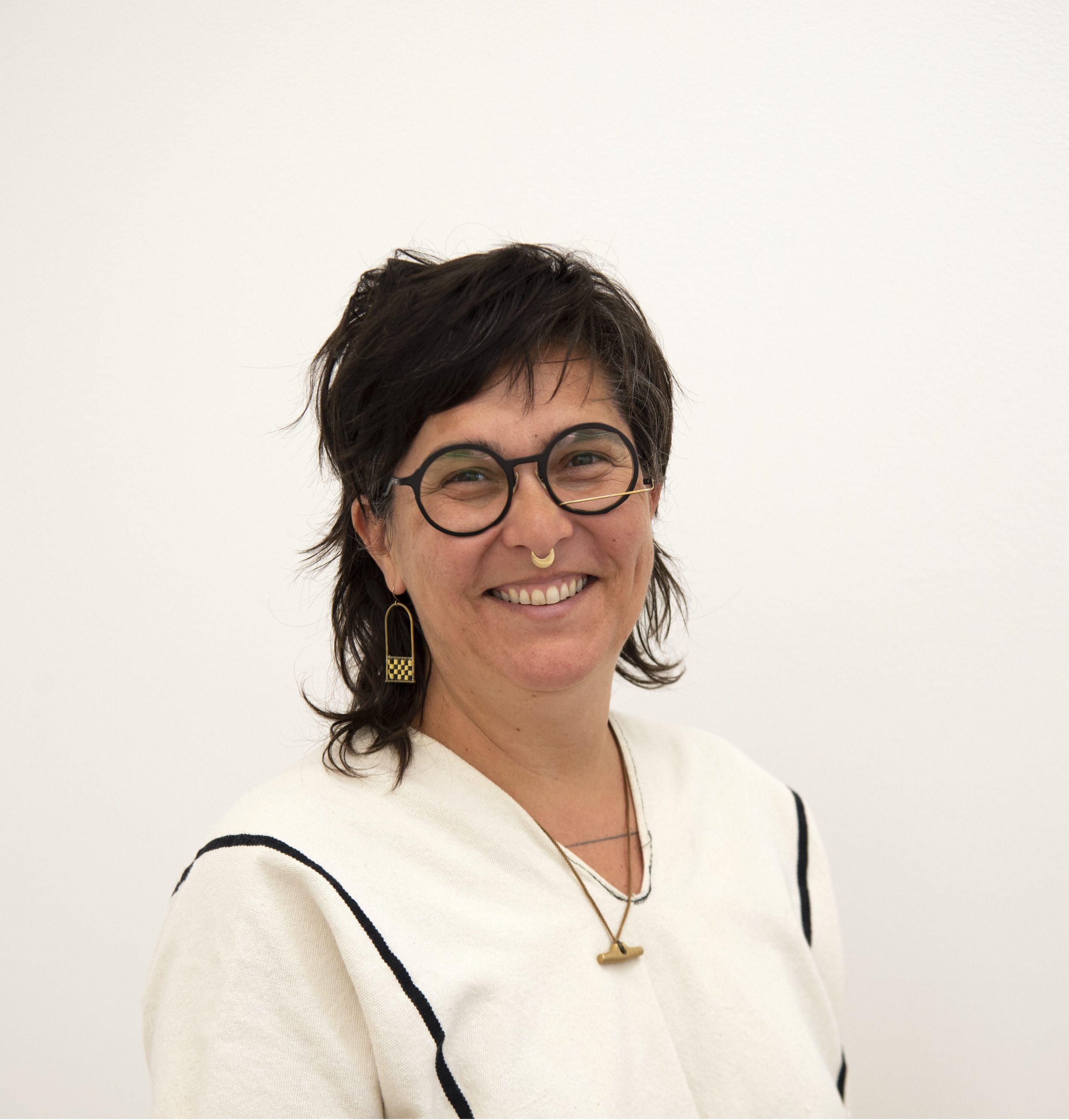Have you ever wanted to make a piece of furniture that is a little bit strange, or suggestive of a place out of time? Or maybe you want to use traditional techniques in unusual ways? This workshop is for you. In our two weeks together, you will learn how to build a small table, think plant stand or bedside table, and then embellish it using historical techniques that we will cover in the workshop. We will also look at contemporary artists who use these kinds of techniques in subversive ways and discuss the provenance of some of these traditions. Students will leave with a small table of their own design, comfort on many of the machines in the woodshop, the basic skills for continued experimentation in wood, and ideas about how to strategically use historical techniques in their work. More advanced students can tackle more complicated builds and carved surface embellishments. All levels welcome.
Read MoreWhat is a found object? Finding objects means discovering new ways of meaning making. Our investment will be in the process of finding itself. “To find” means to retrieve something lost, but also "to be situated," "to deem something so," for "something to be the case that…" suggesting a search for a conclusive answer or determination. We will explore strategies for working with found objects which foreground the task of finding itself as one which is deeply situational, subjective, and at the heart of our own curiosities and creative impulses. Work with found objects involves negotiating with an inanimate interlocutor. Individual objects have their own lived histories, use values, presences, auras—they are already speaking and arrive with their own agendas. Working with findings entails negotiating and collaborating to form new meaning beyond what we could achieve independently.
Read MoreSince 2011, Haystack has invited digital artists, engineers, researchers, and makers from the international Fab Lab network to enrich our community. Collaborations with esteemed institutions like MIT, Harvard, and RISD have fostered a unique exchange at the intersection of digital fabrication and craft. The Fab Lab Residency now emphasizes the creation of impactful projects and experiences, enriching the campus community. Residents—utilizing their expertise—will develop and share innovative demonstrations, workshops, interactive projects, or installations.
Fab Lab Residents augment the summer sessions and do not lead studio workshops.
Read MoreIn this workshop we will focus on using locally sourced native materials in our pots. We will work on the wheel to make pitchers, cups, jars, and teapots, and expose the character of the clay by cutting, faceting, and slipping pots. Students are encouraged to bring samples of rocks, shales, and clays that are local to them. We will process these materials and make simple glaze blends to fire along with our pots in the reduction and soda kilns. Please note that we will not be sourcing materials from the Haystack campus to preserve the delicate habitat. All levels welcome.
Read MoreIn this workshop, students will explore the basics of e-textiles. Using materials like conductive thread and fabric, sewable lights, and other modified electrical components, we will combine traditional textile techniques with basic electronic components. We will rethink the possibility of our classic fiber tools like weaving looms, knitting machines, and sewing machines and explore the Haystack Fab Lab to push the boundaries of technology and craft. Students do not need a background in electronics, but at least a basic understanding of some textile application(s) is encouraged and preferred. All levels welcome.
Read MoreThis workshop will focus on the foundations of glass and creative exploration through the dynamic process of glassblowing. Students will learn the proper form, tools, and techniques to work with glass in the studio. We will highlight proper body mechanics, working in multiples, and repetition to hone important foundational skills. The first week will be dedicated to form and skill building, followed by practicing those skills in exploring conceptual development, personal narrative, and thoughtful design. With this hands-on, in-depth learning environment, you will leave with a new material language to add to your creative toolbox. This workshop is intended for beginners.
Read MoreThis workshop will offer hands-on demos exploring computational inks, including thermochromic inks that change color with temperature variations, photochromic inks that react to light exposure, and conductive inks used for creating screen-printed circuits. Participants will engage in creating interactive prints that change color and form. Topics ranging from basic screen printing techniques to the principles of incorporating interactive elements into prints will be covered. Students do not need prior experience in circuitry and should be excited to explore circuits and interactive elements in relation to screen printing. All levels welcome.
Read MoreThis workshop focuses on using steel, typically considered a non-precious metal, to fabricate jewelry and small sculptures. Participants will learn about the working properties of steel and what makes it similar yet different from working with non-ferrous or precious metals. Demonstrations on sawing, annealing, forming, and finishing mild steel will be given. Students will explore soldering steel with gold and silver solders for construction and surface embellishment. Small-scale oxy/acetylene welding will also be taught for wire and sheet fabrication. It is preferable that students have at least some sawing experience, but it is not required. All levels welcome.
Read MoreHardwood is a beautiful and versatile material for constructing table and floor lamp bodies. This workshop will explore various shapes, from Brancusi and Sottsass to free-form Midcentury Modern to clean-lined Scandinavian designs. Fabrication techniques will encompass stacked and vertical lamination of hardwood, lathe turning, bandsaw cutting and shaping, and free-form carving. We will also cover traditional wiring principles and techniques, the treatment of lampshades, and hand-applied wood finishing. Follow along with Scott as he constructs a table lamp body from start to finish. Intermediate woodworking skills required; Students should have a general understanding of basic joinery.
Read MoreContinuing her current series of fiber works, Tanya will be taking weaving lessons from nature. Using sight, sound, touch, smell, and memory, she will lead collaborative-making sessions with fire, water, air, and earth; working primarily with discarded materials from Haystack's studios and the local area. Telar Terrenal began with Tanya realizing that the Los Angeles River was weaving structures and laboring objects into shapes.
Read MoreSince 2011, Haystack has invited digital artists, engineers, researchers, and makers from the international Fab Lab network to enrich our community. Collaborations with esteemed institutions like MIT, Harvard, and RISD have fostered a unique exchange at the intersection of digital fabrication and craft. The Fab Lab Residency now emphasizes the creation of impactful projects and experiences, enriching the campus community. Residents—utilizing their expertise—will develop and share innovative demonstrations, workshops, interactive projects, or installations.
Fab Lab Residents augment the summer sessions and do not lead studio workshops.
Read MoreCome explore the language of repetition and familiarity through plaster mold making and slip casting. Whether you sculpt a new form or use a found object that has inherited language, see how material transformation changes the narrative of an object. We will discuss the history of kitsch, plaster mold making techniques, and best practices for casting porcelain slip. A basic understanding of the clay process is extremely helpful. All levels welcome.
Read MoreExplore the process and possibilities of print/mark making and resist techniques on fabric utilizing a variety of tools and natural color. Pigments obtained from natural dyes are at the very foundation of the ways we have come to see and understand color today. Participants will work to understand cultural practices and traditions central to design within natural dyeing while drawing on their own personal history, experimentation, and creative interests. All levels welcome.
Read MoreWe will focus on what makes glass such a unique artistic material. Improving on the fundamentals of glassblowing—gathering, turning, heating, bubble-prep, teamwork, etc.—can free your creative voice. Bring a list of what interests you (not just what you want to make) and we will workshop how to creatively experiment in the hotshop to express and evolve these ideas. Techniques covered will include traditional glassblowing, color applications, torch-working, hot-sculpting, and assemblage, as methods to bring your vision to life. Glassblowing experience required.
Read MoreEnter into a creative process to reveal visually what lies within us through contemplation and mixed media collage. We will use acrylic paint, paper, found/discarded objects, and unconventional tools to create works that are emotive, unique, and alive. This workshop will provide space for participants to follow their curiosity and create their own visual vocabulary of texture, color, mark-making, and composition to create moments of encounter upon the canvas. This workshop is all about the process and not getting distracted by what the final piece may become—it is a process of fostering curiosity and wonder; as well as creativity and overcoming some of the fears that can keep us from making the first mark. All levels welcome.
Read MoreThin metal sheets can be formed and fabricated to create the illusion of thickness: this is the silversmith’s sleight of hand. We will explore this effect by layering volumes and thickening edges. While handheld vessels are anticipated, other outcomes may ensue. Demonstrated techniques will include sinking and raising, lapped seams, specific soldering, casual chasing and repoussé, and forging. Copper or bronze sheet will be used. We will pour silver ingots if time allows. Basic metal experience, such as jewelry-making and torch use, is required.
Read MoreThis workshop will bridge two craft disciplines through materiality, method, process, and consideration. Both textiles and woodwork share relational qualities. Through making and experimentation, participants will investigate the poetics of these two crafts, contemplating new points of connection and overlap while understanding the historical practice of each discipline. How can fibers dovetail into wood? How can wood become weft? All levels welcome.
Read MoreSince 2011, Haystack has invited digital artists, engineers, researchers, and makers from the international Fab Lab network to enrich our community. Collaborations with esteemed institutions like MIT, Harvard, and RISD have fostered a unique exchange at the intersection of digital fabrication and craft. The Fab Lab Residency now emphasizes the creation of impactful projects and experiences, enriching the campus community. Residents—utilizing their expertise—will develop and share innovative demonstrations, workshops, interactive projects, or installations.
Fab Lab Residents augment the summer sessions and do not lead studio workshops.
Read MoreThis workshop focuses on surface pattern design, emphasizing various pictorial designs from global cultures to develop a symbolic language reflecting individual creative expression. Through demonstrations, students will learn various approaches to creating a library of patterns using surface design techniques, including stamping, inlay, carving, and resist techniques. This workshop aims for students to find their visual vocabulary through pattern design. All levels welcome.
Read MoreSharing a Traditional Art form that was passed down to her by great-grandmother more than fifty-four years ago, workshop participants will be guided by Lynette D. Youson to weave a traditional basket. Using materials that are all naturally grown within the Gullah Geechie Corridor—which extends from Wilmington, North Carolina to St. Augustine, Florida—Sweetgrass, Pine Needles, Bul-Rush, and Palmetto Palm are the materials that will be used. With a little direction and patience students will learn skills to explore and create beautiful artwork through basketmaking. All levels welcome.
Read More



















